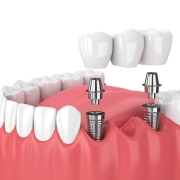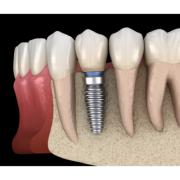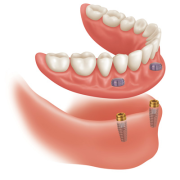5 Commonly Asked Questions About Dental Implants
A missing tooth can be a serious problem, especially if it impacts your self-confidence or your dental health. Your dentist in Cuyahoga Falls, OH, can help with dental implant installation. Installing a dental implant can help you fill a gap in your mouth and restore your smile to its original beauty.
Below, we’ve listed six commonly asked questions about dental implants. Do you have more questions about dental implants? If so, we can answer them. Call today to get answers to your dental implant questions.
1. What are dental implants?
A dental implant is a prosthetic tooth that fills the space where a permanent tooth used to be. Dental implants consist of three pieces: the implant post, abutment, and crown. The post is installed in the jaw, much like tooth roots. Dental implants are a lot like natural teeth.
2. How are dental implants installed?
Dental implants are installed over several visits to the dentist. First, the dentist will evaluate your jaw and determine whether you’re a good candidate for dental implants. If needed, the dentist may give you a bone graft to build volume in your jaw. Then, the three pieces of the implant will be installed in three different visits to the dentist. Installing dental implants takes several months.
3. Am I a good candidate for dental implants?
You may be a good candidate for dental implants if you have good oral health and sufficient jaw to hold on to a dental implant. Your dentist will evaluate your dental health to determine whether you’re a good candidate for this type of prosthetic tooth.
4. How do I maintain dental implants?
Maintaining dental implants is relatively easy.
- Brush your teeth twice daily with non-abrasive toothpaste.
- See the dentist every six months for a checkup.
- Avoid using your teeth as scissors.
5. What are the benefits of dental implants?
Dental implants restore your smile after the loss of a permanent tooth. Dental implants can also help prevent your other teeth from sliding out of position.
Do you need dental implants in Cuyahoga Falls, OH? If so, call today to make an appointment.















